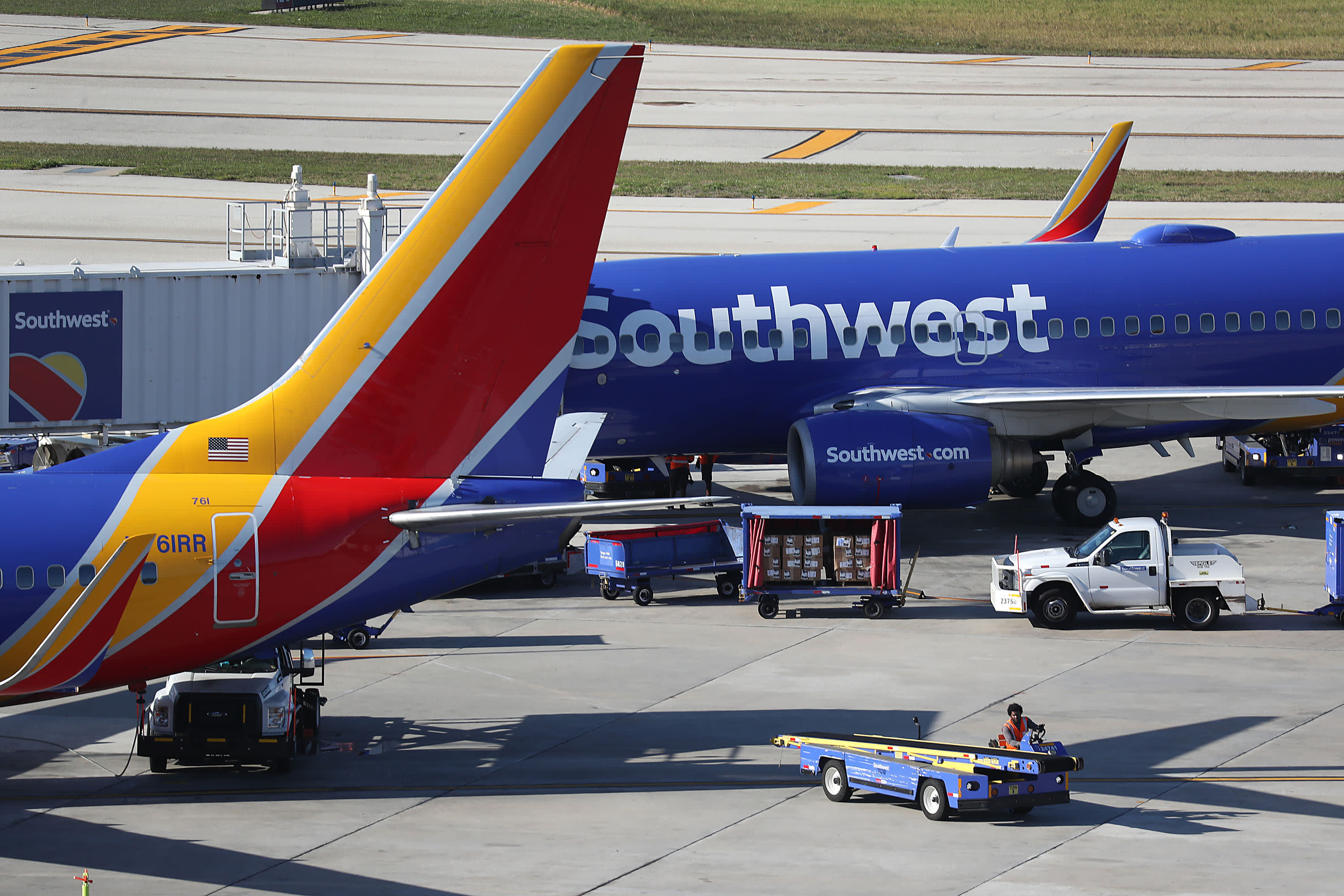Southwest CEO Gary Kelly told CNBC on Thursday the airline is focusing its operations on leisure fliers, citing the difficulty in predicting when business travel will rebound in earnest from the coronavirus pandemic.
Kelly, appearing on “Squawk on the Street,” said it usually takes about five years for corporate travel to begin expanding again after recessions. “You’ve got believe that will at least be the case now,” he added. “And I’ve said before, it may be 10 years before business travel recovers. I don’t know.”
“But we’re going to be prepared to be more dependent upon consumer travel, and we will do well in that environment,” Kelly said, shortly after the airline reported its largest-ever quarterly loss of $1.2 billion as the pandemic continues to dent demand.
Southwest’s third-quarter operating revenue of $1.8 billion represented a 68% decline compared with a year earlier. However, its daily cash burn of roughly $16 million in the period was an improvement over about $23 million per day in the second quarter.
Shares of Southwest rose by nearly 5% on Thursday.
The Covid-19 crisis has devastated the airline industry, which has been lobbying Congress for more financial aid to protect jobs. Although air travel overall has picked up since its April nadir, business trips have not returned at the same rate as leisure fliers. That has consequences for the companies because business travelers represented 50% of U.S. carriers’ revenue on just 30% of trips before the pandemic, according to industry group Airlines for America.
It has now been months of business meetings being conducted via videoconferencing, in lieu of in-person visits that required employee flights. As a result, questions have been raised about how eager companies will be to return to prior levels of travel while the coronavirus remains a threat.
Kelly, for his part, said he believes the doomsday predictions are unlikely to materialize. “My opinion is that this too shall pass. Just like 9/11, everybody said the world is going to change, people aren’t going to fly. They were wrong,” he said.
“I do think there is a need for business people to travel and I think that that will get back to ‘normal’ at some point. I’ll bet you it’s a long time from now,” he said. “But that’s just my opinion. What we have to plan for is different. … We’ve got to manage this risk, and so we have to assume we’ll be more dependent on consumers in terms of our demand in the future.”
One way to do that is to adjust its route system to be more tailored around flights leisure travelers would take, Kelly said. He also said it means, “we need to keep our costs low. We need to keep our fares low.”
Although that is the near-term strategy, Kelly said it is possible the company’s forecasts about corporate trips will be proven incorrect and they return sooner than expected. “Fine. That’s just more upside. We’ll buy more airplanes and we’ll be happy,” he said.

